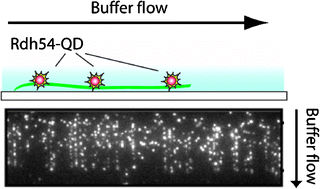Single molecule studies of homologous recombination†
Abstract
Single molecule methods offer an unprecedented opportunity to examine complex macromolecular reactions that are obfuscated by ensemble averaging. The application of single molecule techniques to study DNA processing enzymes has revealed new mechanistic details that are unobtainable from bulk biochemical studies. Homologous

- This article is part of the themed collection: In Honour of Bruce Alberts -- the Biochemistry of multi-protein complexes

 Please wait while we load your content...
Please wait while we load your content...